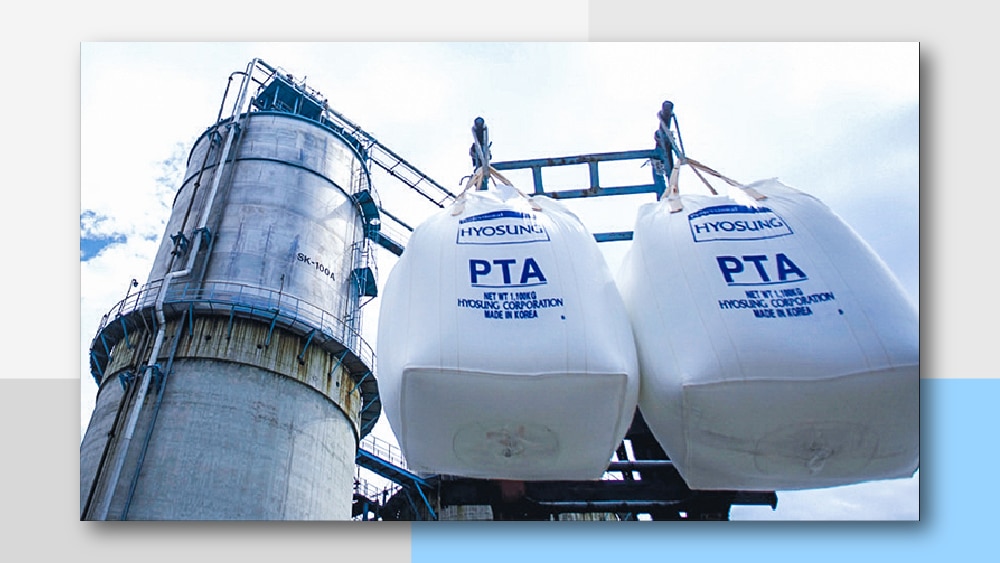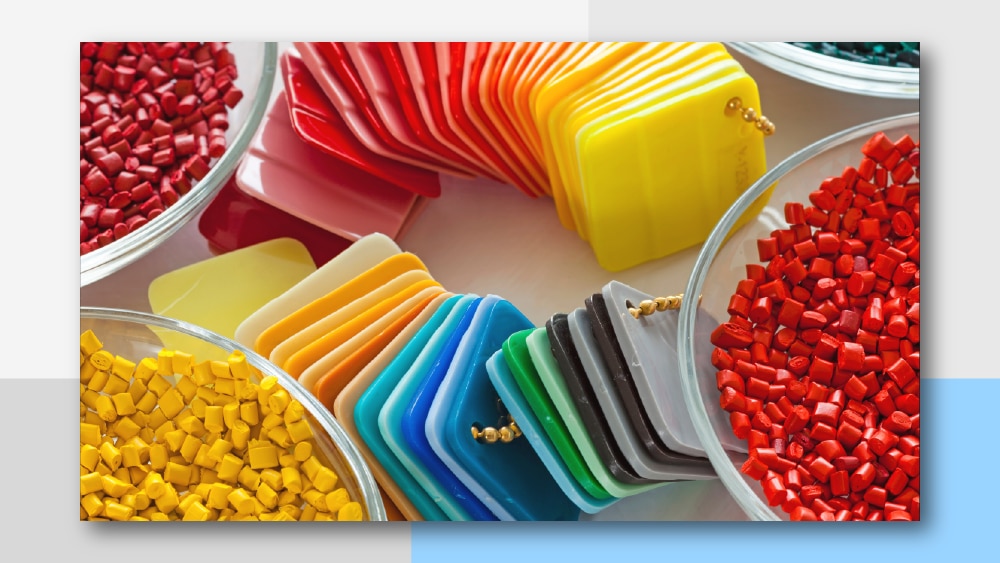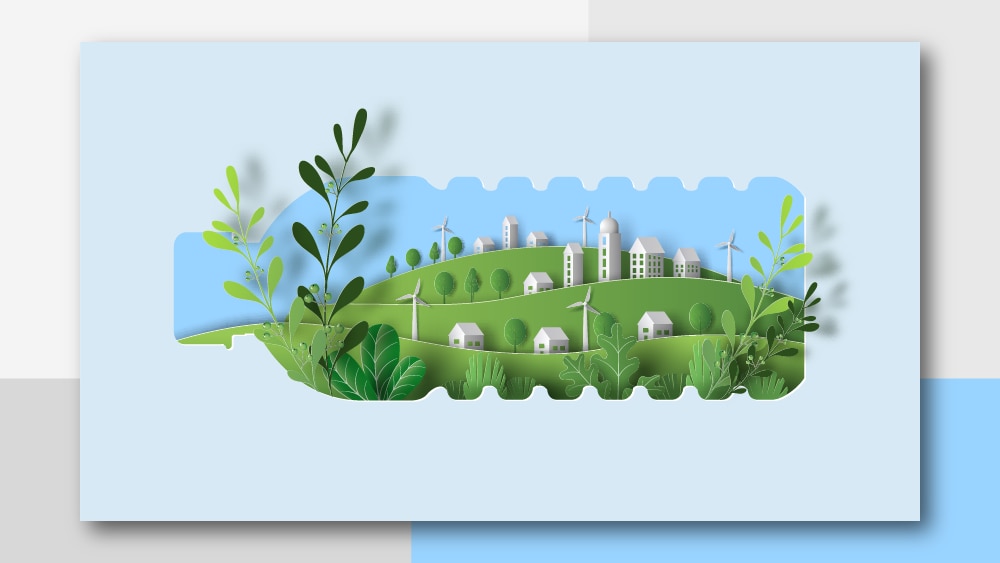The Evolution of Plastic
Brand Journalism
Mar 29, 2024
Did you know the first plastic was made from fabric? Back in 1863, billiard balls were made of elephant ivory, which led to a rise in demand for ivory. Unfortunately, this resulted in widespread poaching and a depletion of the ivory supply. In response, scientists began to develop alternative materials, eventually resulting in the creation of plastic. The process started with nitric acid and fabric, which evolved into a byproduct of coal gas synthesis, and eventually became synthetic plastic thanks to petrochemical scientists. After World War II, plastic production grew significantly, becoming essential to our daily lives. However, this convenience has come at a cost, as plastic pollution has become a serious problem, even leading to the formation of a plastic island in the ocean. What started as an effort to protect elephant ivory has now become a threat to the environment and human health, making it crucial to develop and promote eco-friendly plastic. This is the fascinating story of plastic's evolution.
Plastic: Innovation to Everyday Essential
Researchers started developing plastic to safeguard the decreasing supply of elephant ivory and offer a substitute for billiard balls it. They used nitric acid and cloth to produce a pliable white material that could be molded into various shapes called 'celluloid.' While it couldn't be marketed due to a tendency to explode when it hit other objects, the plastic we have today can trace its origins back to this celluloid. In 1907, Bakelite, the first plastic made from coal gas synthesis byproduct, was created. Although initially a weak brown material, its durability improved over time, and its color variations expanded, making it useful in lighting fixtures and plugs. In the 1930s and 1940s, petrochemical scientists developed various synthetic plastics, such as polyethylene.
Plastic production’s exponential growth started with World War II’s onset. Plastic was first utilized as a replacement for parachute silk. It found its way into many applications, such as aircraft radar wiring, supply ships, and even plastic helmets that replaced metal ones. Plastic was incorporated into vinyl records, cassette tapes, and CDs over time. With the addition of certain compounds, plastic became flexible enough to be used in medical blood bags and hospital pipes. The petrochemical industry witnessed significant growth post World War II, which led to a 'Plastic Revolution' and the establishment of plastic factories worldwide. As a result, the cost of plastic decreased, and it became more common in items intended for one-time use, like utensils, dishes, and cups. Despite its convenience, plastic poses a serious threat to the environment. It's contributing to the formation of garbage patches in the ocean, breaking down into tiny particles known as microplastics, and even showing up on our dinner tables as a major cause of pollution.
Hyosung's Diverse Plastics
Hyosung Chemical is a renowned manufacturer of a wide range of chemical products. Their high-purity TPA is exported to Asia, Europe, and the Middle East, while their material for hot and cold water pipes, R200P, boasts the highest global market share. In addition, they produce Polypropylene (PP) and a variety of films for industrial, optical, and packaging purposes. Hyosung's PP resin is exported worldwide and is utilized in numerous applications, such as intravenous solutions and syringes in the medical field, transparent food containers, water and heating pipes, special films, both interior and exterior automotive parts, and heat-resistant household appliances like toasters and electric kettles.
Hyosung Chemical produces a range of films that are used in different applications. These include low retardation PET films that are used as protective films for the inner and outer liquid crystal screens of foldable phones that are currently popular. Additionally, the company offers environmentally friendly PCR films that are used for mobile shipment protection. Their Polyketone (POKETONE) material, a high-molecular engineering plastic, was the first in the world to be successfully commercialized and is highly regarded as a key material in the global parts business due to its excellent properties and competitiveness.
Polyketone (POKETONE) is a type of plastic produced using carbon monoxide, ethylene, and propylene - substances that are known to contribute to air pollution. However, the production process of Polyketone (POKETONE) helps to reduce environmental pollution, making it an eco-friendly option that has received high praise. In addition, Hyosung also produces PCR (Post-Consumer Recycled material) PP and PCR-PET FILM by recycling discarded plastics, which helps to promote a virtuous cycle of plastic usage.

Hyosung Chemical's Globally Competitive Plastics
With our globally recognized advanced technology, Hyosung Chemical manufactures top-of-the-line plastics. Our lineup includes PP/DH PU, TPA PU, Polyketone, Film PU, and Optical Film PU, all designed to meet the highest industry standards. Our Polypropylene resin, in particular, is widely regarded as the most extensively used material among the five major general-purpose resins and is recognized for its exceptional technical expertise. Our advanced polymer technology allows it to be utilized in both general and specialized products, and its superior quality is highly regarded, especially in its random copolymer products for pipe usage, which are exported worldwide.
Hyosung has taken measures to ensure a consistent supply of high-purity propylene, the primary raw material for their Polypropylene resin. They have implemented advanced techniques to procure it from the propane dehydrogenation (DH) process, creating a vertically integrated process from raw materials to finished products.
Hyosung Chemical is a renowned producer of top-notch TPA with high purity and quality. Utilizing advanced chemical technology and extensive experience, the company offers TPA PU, a key ingredient for high-performance polyester fiber. It is also used as a raw material in everyday materials such as PET bottles, polyester films, and tire cords. Hyosung Chemical prides itself on producing and supplying TPA on a massive scale of 420,000 tons annually.

Eco-friendly and Trendy Plastics
Plastic has undoubtedly made our lives easier but it has also created several environmental problems. It has resulted in ocean pollution, disrupted ecosystems, and even poses health risks. As we become more environmentally conscious, it's essential to change our approach to plastic. Hyosung Chemical is doing its part by developing and introducing eco-friendly plastics.
Hyosung Chemical has developed the world's first commercially successful Polyketone, an engineering plastic that is eco-friendly and safe for human use. It boasts exceptional resistance to impact, wear, chemicals, fuel, and gases, making it a highly versatile material with many potential applications. Unlike other plastics, Polyketone is free of harmful substances, making it suitable for use in children's products and food-related items. It is also less prone to deformation when exposed to disinfectants. Its high gas barrier and chemical resistance make it ideal for mining pipe liners and food films, while its durability helps extend the lifespan of industrial materials. Additionally, Polyketone is produced using carbon monoxide and olefins, resulting in a lower carbon footprint than traditional plastics. Hyosung's commercial Polyketone plant was completed in 2015, marking a proactive move into the engineering plastics market.
Although creating new materials to replace plastics is positive, it is equally important to address the environmental impact of the vast amounts of plastic waste that are already produced. Hyosung Chemical has developed and produced PCR (Post-Consumer Recycled material) PP and PCR PET FILM, which recycle plastics discarded by end users. By using mechanical recycling processes, the discarded plastics and PP products are crushed, washed, and remelted into pellet form, producing PCR PP that can be recycled repeatedly. Additionally, Hyosung Chemical's PCR PET FILM has received RCS certification for containing over 99% eco-friendly raw materials and is used to make IT mobile shipping protection films, label films, and other products by recycling used PET.
Hyosung Chemical has taken steps to promote its eco-friendly plastic business by applying for trademark rights for related brands such as 'Hyosung Eco PP (Polypropylene)' and 'Ecofillene' at the Patent Office. These trademarks are intended for use in the eco-friendly plastic industry, and the company is working towards developing eco-friendly PP as a replacement for general-purpose plastic material, which is widely produced and consumed worldwide, amounting to over 300 million tons annually.

Plastic was first created to safeguard elephant ivory, but over time it has become an integral part of our daily lives, providing convenience in countless ways. However, plastic serious threatens human health, disrupting ecosystems and harming the planet. Hyosung Chemical has played a significant role in advancing plastic technology for human convenience. Still, we are committed to developing innovative plastics that protect our lives and the environment. Our goal is to create chemistry improves our lives and safeguards the Earth’s and humanity’s well-being. The future of plastic lies in its ability to protect the environment, and we are dedicated to creating the necessary changes to make this a reality.